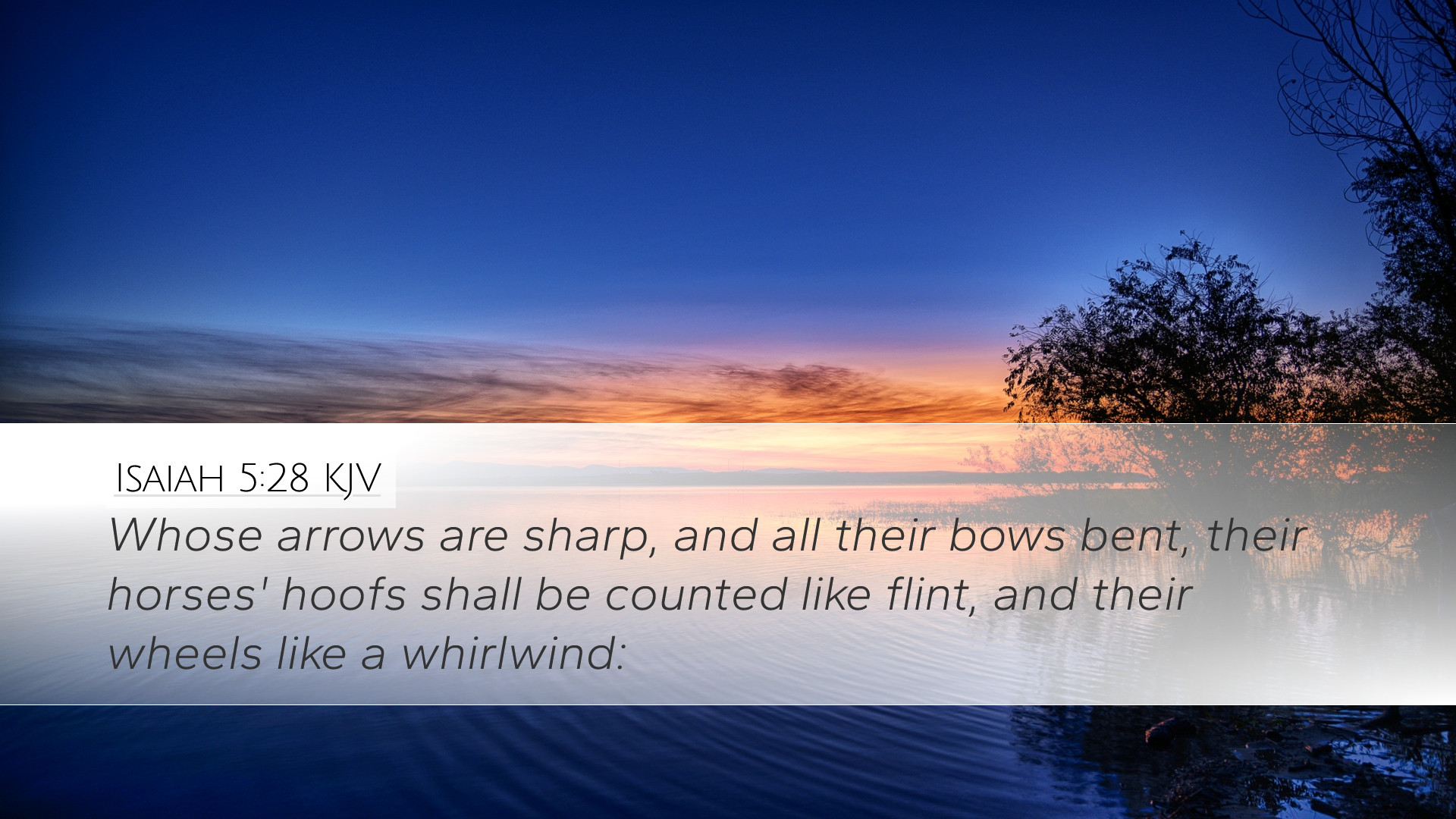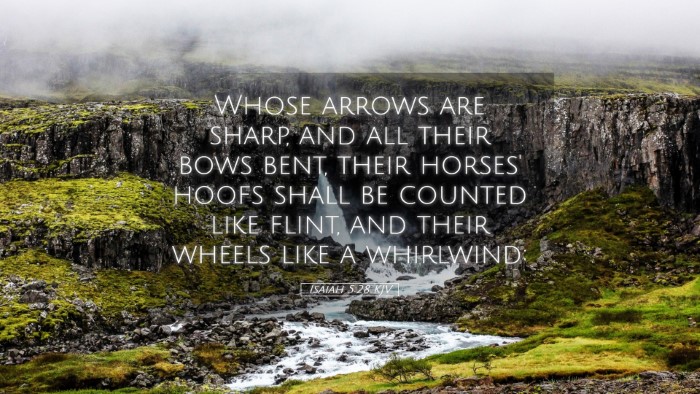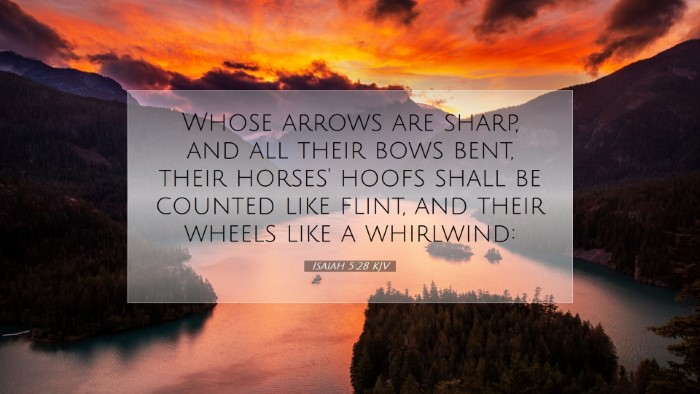Isaiah 5:28 Commentary
Verse: "Whose arrows are sharp, and all their bows bent, their horses' hoofs shall be counted like flint, and their wheels like a whirlwind."
Introduction
This verse from the book of Isaiah serves as part of a larger mosaic depicting the impending judgment and the fierce nature of the Assyrian army, which God would utilize as an instrument of His divine wrath against Israel. The verse serves as a potent reminder of God’s sovereignty, the seriousness of sin, and the inevitability of judgment for those who persist in rebellion against Him.
Historical Context
Isaiah prophesied during a tumultuous period in Israel’s history, primarily in the late 8th century BC. The Israelite people were engaged in moral decay and idol worship, which ignited God’s anger. In this chapter, Isaiah highlights the severity of divine judgment coming through nations like Assyria, which were characterized by unmatched military might.
Military Imagery
The imagery in this verse is striking. The “sharp arrows” and “bent bows” symbolize not only the readiness of war but also the precision and lethality of the Assyrian forces. This fortitude emphasizes both the fearful nature of the judgment and the fact that God is orchestrating the events. Commentators like Matthew Henry describe these metaphors as expressing “the wrath and power of the army,” a force that is ready to execute judgment at God’s command.
Theological Insights
Several theological themes emerge from Isaiah 5:28 that hold significance for modern readers and scholars.
- The Sovereignty of God: This passage reaffirms God’s absolute power over the nations. He raises and utilizes foreign powers to accomplish His purposes, reminding readers that history is under His control.
- The Certainty of Judgment: The vivid descriptions serve as a warning. The sharpness and readiness of the weapons symbolize the certainty of God’s judgment against unrighteousness.
- The Need for Repentance: While the passage emphasizes divine wrath, it also serves as a backdrop that would call the people to repentance. There is always space for returning to God’s covenant and mercy.
Commentary Insights
The following insights from notable public domain commentaries augment our understanding of this verse:
Matthew Henry
According to Henry, the focus on “arrows” and “bows” seeks to communicate the impending peril that Israel would face. He suggests that this imagery of battle not only reflects the Assyrians' readiness but also serves as a stark reminder of the consequences of defiance against God.
Albert Barnes
Barnes highlights the metaphorical significance of the “chariots” compared to “whirlwinds.” He argues that such clarity in imagery serves to underscore God's capabilities to bring swift judgment, comparing the Assyrian cavalry to natural forces that move rapidly and with great strength.
Adam Clarke
Clarke expands on the imagery around the horses’ hoofs being “like flint.” He interprets this as an indication of their strength and unyielding nature, suggesting that the might of the Assyrian forces was both terrifying and formidable. He posits that the symbolism elevates the nature of the battle ahead, highlighting the thoroughness of the judgment awaiting Israel.
Practical Applications
This verse, rich with imagery and profound lessons, speaks powerfully to contemporary audiences. Here are some practical applications:
- Understanding Divine Wrath: It calls upon individuals to recognize that God’s judgment is not arbitrary but is grounded in His holiness and justice. It encourages a healthy fear of God, one that prompts self-examination and accountability.
- Embracing Repentance: The knowledge of impending judgment serves to encourage the faithful. It invites believers to seek restoration with God, leading to repentance and renewed commitment to His will.
- Appreciating God’s Sovereignty: Confirming the truth that God utilizes all events and persons, even adversarial nations, to accomplish His divine plan instills in believers a sense of peace and assurance amidst chaos.
Conclusion
In summary, Isaiah 5:28 vividly portrays the urgency and severity of impending judgment against Israel, employing striking military imagery to reflect divine wrath while simultaneously pointing to the sovereignty of God in all circumstances. The insights from public domain commentaries enrich our understanding and provide a well-rounded view of this verse, making it relevant for pastors, students, theologians, and biblical scholars alike. In the complexities of spiritual life, Isaiah 5:28 remains a powerful reminder of God’s justice and the ascendance of His will throughout history.


